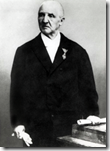This complete set of Bruckner symphonies reflects a lifetime's engagement with the music, and easily takes its place among the finest cycles available. Since the 1970s, I have been lucky enough to see Skrowaczewski conduct symphonies 3, 7, 8, and 9 in concert, and there was no question then, nor is there now, that his understanding of Bruckner's music and personal engagement with its peculiar sound world is second to none. He also offers one of the most complete of all Bruckner cycles, including both Symphony No. 0 and the earlier  Study-Symphony (a stunning performance) alongside the canonical nine. You even get the Overture in G minor and a lovely arrangement for strings of the adagio from the String Quintet, and at rock bottom budget price, that's quite a package. Regarding the individual performances, there isn't a single weak link anywhere. In fact, if there's a more consistently achieved set available I haven't heard it, and one of Skrowaczewski's principal strengths lies in his treatment of all of these works, whether early or late, as speaking recognizably the same musical language. Interpretively, he's not the kind of conductor who makes his points through extremes or modifications of tempo as much as through careful phrasing and adjustment of balances and dynamics. Perhaps the clearest example of this occurs in the finale of the Fifth Symphony, where in addition to a central fugue of exceptional sharpness and linear drive, Skroweczewski isn't afraid in the final chorale to take the horns up an octave, or to make a dramatic diminuendo at the very end so that the ascending line in the flutes and violins is clearly audible. The result, because of his steady tempos and directional focus, never sounds fussy or mannered. On the contrary, it's thrilling, and this account of the Fifth's last movement is one of the very few that achieves a feeling of finality right at the very last chord rather than pages before. In fact, in all of these performances, Skrowaczewski reveals a total understanding of how to approach a climax, create a sense of fulfillment and completion at a work's end (no mean task in Bruckner), or how to maintain the music's dramatic momentum however sectional the form. In this respect he's very similar to Günter Wand in his mastery of the music's architecture, nowhere more so than in problematic works like the Third Symphony, whose most patchwork movement (the finale) goes as if preordained by the Fates themselves. Similarly, although Skroweczewski uses the Nowak edition in the Eighth Symphony, no one better conceals the occasional awkward transitions in the adagio and finale caused by Bruckner's excisions. And there's no more eloquent testimony to Skrowczewski's mastery than the fact that his performance of the Seventh, a work about which there are no serious textual issues (cymbal crash aside), stands among the best available. You'll never hear the opening two movements more intelligently, more inevitably paced or shaped. Skrowaczewski's vision receives a great deal of support from the excellent playing of the Saarbrücken Radio Symphony. They know their Bruckner too: brass sonorities are well differentiated and carefully balanced between horns, trumpets, and trombones; the strings understand the need to breathe life into even the simplest tremolo; woodwinds shine in solo passages; and underneath it all the timpanist offers a rock-solid foundation. Still, this isn't the most powerful orchestra in the world. The horns don't always cut through dense textures as do those in Chicago or Vienna (compare this conductor's earlier Fourth Symphony from Hallé, which for this reason remains slightly preferable), and Skrowaczewski's Ninth Symphony from Minnesota on Reference Recordings has even more bite to the playing and finer sound than this newer one. Nevertheless, these are minor points, especially because this comparatively linear conception of the music relies less on sheer power than on textural clarity and goal-directed phrasing over long spans, and in these respects the playing generally suits the interpretations nicely. In the budget Bruckner sweepstakes, collectors are spoiled for choice. Jochum's EMI cycle with the magnificent Staatskapelle Dresden offers a very different, more flexible (tempo-wise), and obviously "Romantic" view. Tintner on Naxos uses interesting alternate versions of some of the symphonies, and he's the quirkiest and most idiosyncratic interpreter. You won't find in him the consistency of Skrowaczewski, but then again when Tinter's risks pay off, as in his very slow performance of the original version of the Third Symphony, the results sound incomparable. However, if forced to recommend a single Bruckner cycle at any price containing the standard versions of the symphonies, then for its surefire combination of fine playing, excellent sonics, and the deepest, most satisfyingly consistent interpretive insights, I'd gladly choose Skrowaczewski. He's that good.--David Hurwitz (from the original review of this release on Arte Nova |